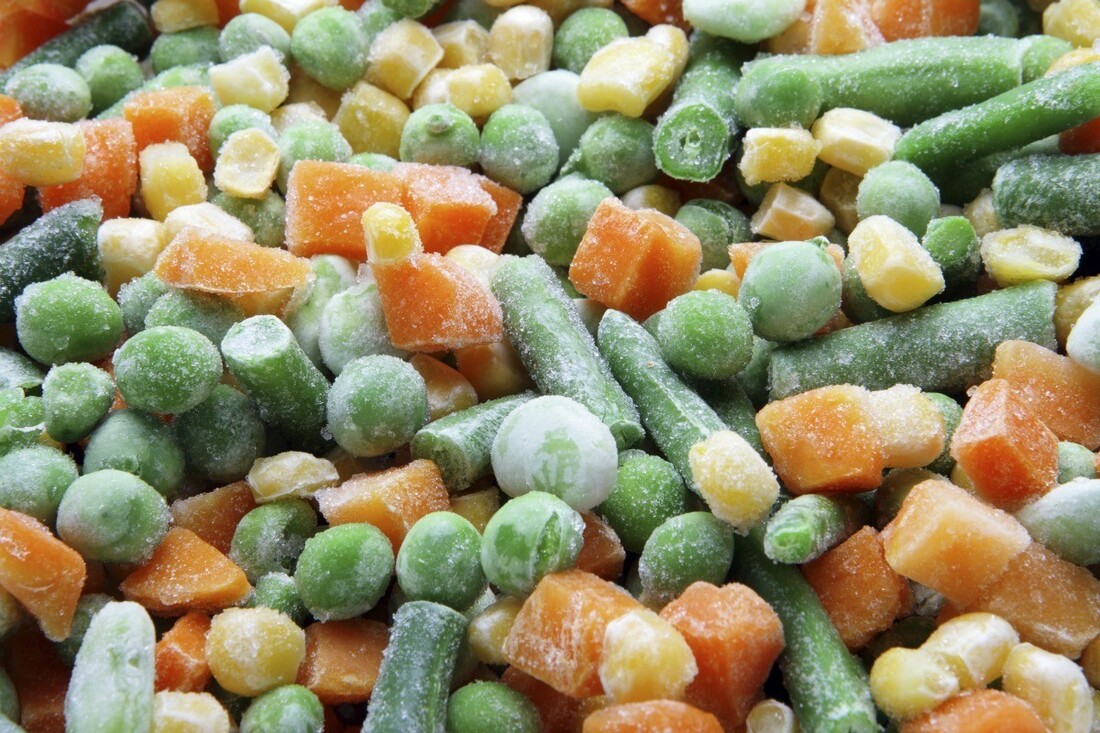Are Frozen Veggies as Healthy as Fresh? By Pierre Mouchette | Bits-n-Pieces Vegetables - Frozen or fresh, are some of the healthiest foods you can eat. They provide your body with many essential nutrients, including:
What to know about frozen versus fresh vegetables. Are frozen vegetables as healthy as fresh ones? Frozen vegetables can be just as healthy as fresh vegetables in their natural form without additives. Most frozen vegetables are frozen quickly after harvesting. This helps keep most of their nutrients. Even so, people’s perception of frozen vegetables is that they are not as healthy as the fresh varieties. But this is only the case if frozen vegetables are mixed in with other additives or processed heavily before freezing. Are nutrients lost when vegetables are frozen? Yes, but not as much as other vegetable preservation methods, such as canning. How freezing affects the nutrient content of vegetables depends on a few things:
Nutrition of fresh vs. frozen vegetables In short, nutrient loss can happen in both fresh and frozen veggies. But compared to frozen ones, fresh varieties may lose them at a faster rate.
Nutrient loss in frozen vegetables Freezing vegetables may affect certain nutrients more than others. For example, a study examining 20 vegetables found that minerals and fiber generally stayed stable after blanching and freezing. But, antioxidants and some vitamins were more sensitive. Blanching (before freezing) caused a drop in vitamin C and folic acid, and freezing affected vitamin C and carotenoids. Like fresh vegetables, frozen ones may also lose nutrients the longer they are frozen. It is why they should be used within eight months to 1 year of purchase. The pros and cons of picking frozen veggies over fresh ones? If you are worried about choosing between frozen and fresh vegetables, the following are the pros and cons. But remember, it is not an all-or-nothing decision. Most people combine both for convenience and taste. Pros of frozen vegetables:
Additives and preservatives in frozen vegetables vs. fresh options Overall, many frozen vegetables are available without any additives or preservatives. But checking the nutrition label on frozen vegetables is always a good idea. That is because some frozen vegetables may have added salt, preservatives, or even artificial color to enhance their appearance. And, if your frozen vegetables include seasonings or a sauce, you will likely find a long list of additives and preservatives. How do you pick the best-frozen vegetables? The following tips to help you in choosing frozen vegetables and making them a part of a healthy diet. Choose plain, frozen vegetables: Ideally, the ingredients should list only the type of vegetables in the package. It lets you control the ingredients you add to them while allowing you to prepare and season them according to your liking. Consider the food grade of frozen products: If quality, texture, and flavor are essential to you, consider looking for frozen vegetables that have a USDA food grade assigned to them:
0 Comments
Your comment will be posted after it is approved.
Leave a Reply. |
Archives
May 2024
|
